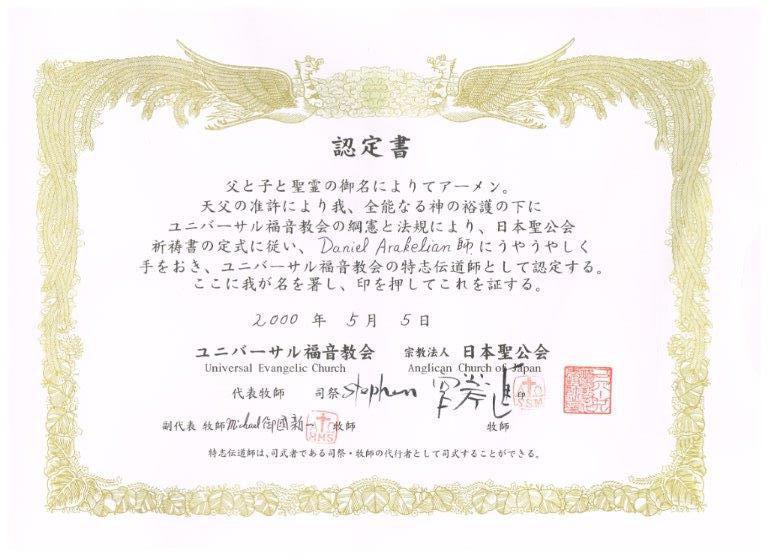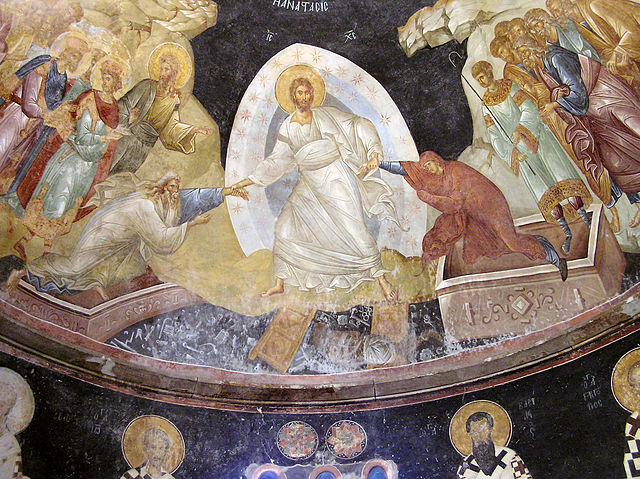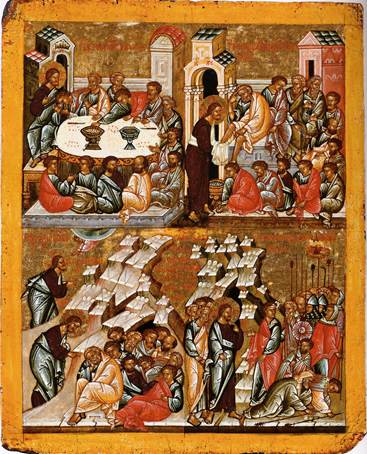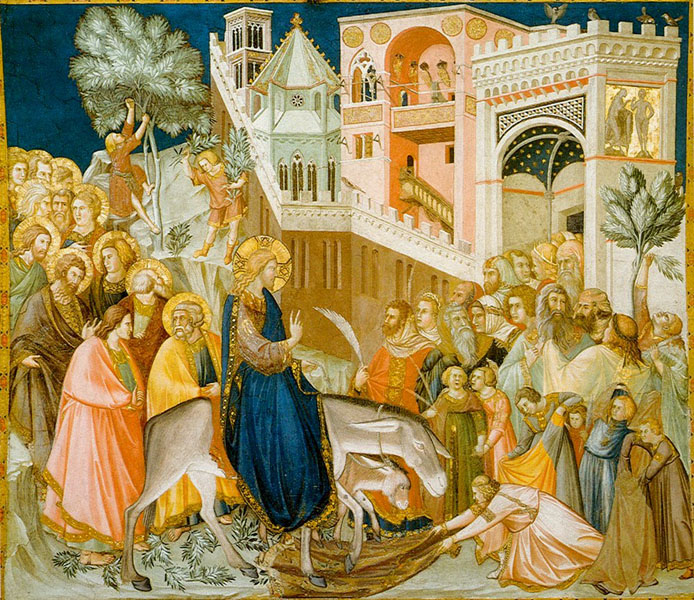
Tuesday 1 January
Circumcision
Marks the day when Jesus was circumcised.
Festival of St Basil the Great
St Basil is one of the great fathers of the Orthodox Church.
Sunday 6 January
Epiphany
Celebrates the visit of the wise men (the magi) to the infant Jesus. In the East, where it originated, the Epiphany celebrates the baptism of Jesus by John the Baptist in the River Jordan. (Catholics and Episcopalians celebrate this separately: see Baptism of the Lord) Also known as Dia de los Reyes (Three Kings Day).
Christmas Day (Armenian Orthodox)
Armenian Christians celebrate Christ’s birth at Epiphany, except for Armenians in the Holy Land, who celebrate Christmas on January 19th.
Theophany
Orthodox churches mark the baptism of Jesus on this day.
Monday 7 January
Christmas Day (Orthodox)
Most Orthodox churches use the Julian rather than the Gregorian version of the Western calendar. As a result, they celebrate Christmas 13 days later than other Christian churches.
Sunday 13 January
St Hilary’s Day
According to tradition, “St. Hilary’s is the coldest day of the year.” St. Hilary was a fourth century Bishop of Poitiers.
Baptism of the Lord
Commemorates the baptism of Jesus in the River Jordan by John the Baptist. Occurs on the first Sunday after Epiphany. Catholics and Episcopalians celebrate this holy day, but Eastern Christianity celebrates the baptism of Jesus at Epiphany.
Friday 18 January
Week of Prayer for Christian Unity (start)
First celebrated in 1908. The days of 18-25 January (regardless of the days of the week involved) were originally chosen because they covered the days between the feast of St Peter and the feast of St Paul. Some churches and regions use a different week.
Monday 21 January
St Agnes
Patron saint of girls, martyred at the age of 13.
Friday 25 January
St Paul’s Day
Anglicans and Catholics celebrate St Paul’s conversion on the road to Damascus.
Monday 28 January
St Thomas Aquinas
Doctor of the Church and patron saint of students and theologians.
Saturday 2 February
Candlemas
This is often called The Presentation of Christ in the Temple and commemorates the day Mary took Jesus to the Temple at Jerusalem to present him to God. Coincides with Groundhog Day (USA)
Monday 11 February
Our Lady of Lourdes
Marks the day in 1858 when St Bernadette had her first vision of the Blessed Virgin Mary.
Tuesday 12 February
Shrove Tuesday
Also called Pancake Day and Mardi Gras. The British name of “Pancake Day” comes from the tradition of making pancakes to use up all the food that could not be eaten during Lent.
Wednesday 13 February
Ash Wednesday
The first day of Lent for Western Christian churches. Lent is the season marking the time Jesus spent in the wilderness.
Thursday 14 February
St Valentine’s Day
Now more a secular festival than a religious one. There are at least three different saints named Valentine.
Friday 1 March
St David’s Day
Saint David, or Dewi Sant as he’s called in the Welsh language, is the patron saint of Wales.
Tuesday 5 March
St Piran’s Day
Piran is regarded as the patron saint of Cornwall and tin miners. He was born in Ireland. The Cornish flag may have been inspired by the legend that Piran discovered the process for smelting tin: black rock with a white cross of pure metal.
Sunday 10 March
Mothering Sunday
Mothering Sunday is the fourth Sunday of Lent. Not the same as Mothers’ Day in the USA.
Sunday 17 March
St Patrick’s Day
St Patrick is the patron saint of Ireland.
Monday 18 March
Clean Monday – Beginning of Lent (Orthodox)
The start of the “Great Lent” for Orthodox Christians. This day is called Clean Monday, and occurs seven weeks before the Orthodox Easter
Tuesday 19 March
St Joseph, husband of the Blessed Virgin Mary
Sunday 24 March
Palm Sunday
The sixth and last Sunday of Lent. Marks the entry of Jesus into Jerusalem and the start of Holy Week.
Monday 25 March
Annunciation
Marks the angel Gabriel’s message to the Virgin Mary that she would give birth to the incarnation of Christ. It also celebrates the incarnation itself as the date falls 9 months before Christmas.
Thursday 28 March
Maundy Thursday
Christians remember Maundy Thursday as the day of the Last Supper, when Jesus washed the feet of his disciples and established the ceremony known as the Eucharist.
Friday 29 March
Good Friday
Good Friday is the Friday before Easter. It commemorates the execution of Jesus by crucifixion.
Sunday 31 March
Easter Sunday (Western)
Christians celebrate the Resurrection of Jesus Christ – his return from death after the Crucifixion. The most important Christian festival. Most years Orthodox Christians celebrate Easter on a different date.
Tuesday 23 April
St George’s Day
Saint George is the patron saint of England.
Sunday 5 May
Easter (Orthodox)
Orthodox Christians celebrate the Resurrection of Jesus Christ – his return from death after the Crucifixion. The most important Christian festival
Thursday 9 May
Ascension Day
Ascension Day marks the last earthly appearance of Christ after his resurrection. Christians believe Christ ascended into heaven. It is celebrated 40 days after Easter.
Sunday 12 May
Ascension Day (Catholic Church in England and Wales)
Ascension Day is normally celebrated 40 days after Easter. The Catholic Church in England and Wales celebrates it on the following Sunday instead.
Sunday 19 May
Pentecost – Whitsun
The seventh Sunday after Easter, commemorating the descent of the Holy Spirit upon the disciples and the birth of the Christian Church.
Sunday 26 May
Trinity Sunday
The first Sunday after Pentecost. Christians meditate on the nature of God as “Three in one”.
Thursday 30 May
Corpus Christi
Roman Catholic festival celebrating the “real presence of Christ in the Eucharist”. The festival falls on the Thursday after Trinity Sunday.
Sunday 2 June
Corpus Christi (Catholic Church in England and Wales)
Corpus Christi falls on the Thursday after Trinity Sunday. The Catholic Church in England and Wales celebrates it on the following Sunday instead.
Saturday 29 June
St Peter’s Day
Observed by Roman Catholic, Anglican, and Lutheran churches. One of the oldest saints’ days.
Sunday 30 June
All Saints’ Day (Orthodox)
This day honours all saints, known and unknown, of the Christian church. Western churches celebrate All Saints Day on November 1.
Monday 15 July
St Swithin’s Day
Swithin (or Swithun) was a Saxon bishop in the 9th century. Legend has it that the weather on his feast day, 15 July, will determine the weather for the next 40 days.
Tuesday 6 August
Transfiguration
Orthodox Christian feast commemorating the sudden emanation of radiance from the person of Jesus that occurred on the mountain.
Thursday 15 August
Assumption of the Blessed Virgin Mary
A largely Roman Catholic festival celebrating their belief that Mary, the mother of Jesus, was taken body and soul into heaven.
Dormition of the Theotokos
An Orthodox festival that commemorates the death, resurrection, and glorification of Christ’s mother. Dormition means “falling asleep”.
Sunday 8 September
Nativity of the Theotokos
Orthodox Christians celebrate the birth of the Virgin Mary
Birthday of the Blessed Virgin Mary
Roman Catholics celebrate the birth of the Virgin Mary.
Feast of the Birth of Mary
Orthodox, Roman Catholic and Anglican Churches celebrate the birth of Mary, mother of Jesus.
Sunday 29 September
Michaelmas/ St Michael’s Day
A feast day in honour of the archangel Michael. Michael is one of only two angels mentioned by name in the Bible (the other being Gabriel.)
Sunday 13 October
St Edward’s Day
Edward the Confessor was King of England 1042 – 1066. He built Westminster Abbey where there is a shrine to him – and where the saint is also celebrated on January 5 each year, the anniversary of his death.
Thursday 31 October
Hallowe’en (All Hallows’ Eve)
The night before All Saints’ Day (All Hallows’ Day). Its origins date back over 2000 years to the ancient Celtic festival of Samhain. It was celebrated as a Christian festival by the 8th Century.
Friday 1 November
All Saints’ Day (Hallowmas, All Hallows’)
All Saints’ Day (also known as All Hallows’ Day or Hallowmas) is when Anglicans and Roman Catholics honour all saints, known and unknown, of the Christian church. Orthodox churches celebrate it on the first Sunday after Pentecost.
Saturday 2 November
All Souls’ Day
All Souls’ Day is an opportunity for Roman Catholic and Anglo-Catholic churches to commemorate the faithful departed. They remember and pray for the souls of people who are in Purgatory. All Souls’ Day is celebrated on 3 November if the 2nd is a Sunday.
Saturday 30 November
St Andrew’s Day
Saint Andrew is the patron saint of Scotland, Greece and Russia. The flag of Scotland is the Cross of St. Andrew. St Andrew, the brother of Simon Peter, was originally a fisherman and became the first Apostle.
Sunday 1 December
Advent Sunday
The beginning of the ecclesiastical year on the Sunday closest to November 30. Advent is the season before Christmas – In Western Christendom, four Sundays are included. In Eastern Christendom, the season is longer and begins in the middle of November
Sunday 8 December
Feast of the Immaculate Conception
Celebrated by Roman Catholics who remember Mary’s conception as being without sin, therefore, immaculate.
Friday 13 December
St Lucy’s Day
Saint Lucy’s Day or the Feast of St. Lucy is marked by Catholics and Orthodox Christians and also celebrated by members of the Lutheran Church.
Tuesday 24 December
Christmas Eve
The day before Christmas Day
Wednesday 25 December
Christmas Day
The day when Western Christians celebrate the birth of Jesus Christ.
Thursday 26 December
St Stephen’s Day









